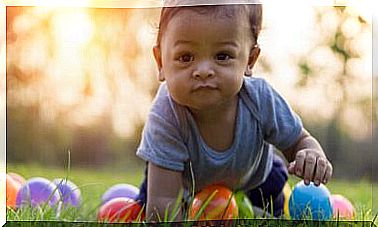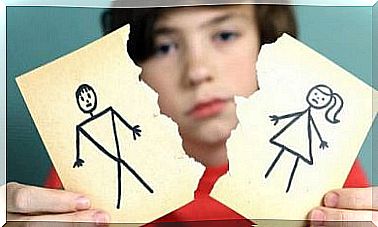Cognitive Biases In Adolescence – Being Parents

Adolescence is a complex stage, which includes great changes on all fronts. The physical, intellectual, social and emotional development of young people reaches high levels.
However, if we do not have information on the processes specific to this stage, it is possible that we perceive adolescents as incomprehensible beings. So that this does not happen, today we are going to talk about the adolescent’s thinking style and his cognitive biases.
At the time of puberty, children begin to think, feel and behave in very different ways. Many parents watch in astonishment how their kind and obedient child quickly becomes a stubborn and independent person.
Despite everything, this is a normal transition which, if we can understand it, will allow us to calmly accompany our children during this phase.
Adolescent egocentrism
With the arrival of adolescence, children reach the stage of formal operations (this is an idea of Piaget). This implies greater cognitive development. Adolescents indeed become able to use abstract reasoning, to construct hypotheses and to deduce consequences. However, this step is also accompanied by what is called adolescent egocentricity.

This egocentrism is based on a confusion between the elements of internal thought and external reality. In this way, young people can maintain excessive confidence in their own ideas, without any concrete facts supporting them. This intellectual egocentrism gives rise to various cognitive biases, which lead to distorted beliefs.
The cognitive biases of adolescence
The imaginary audience
Adolescents have an exaggerated self-awareness. They spend most of their time thinking about themselves and think other people are doing the same thing: being focused on them. So that explains why they feel like they are the center of all eyes. They think that others are watching and judging them constantly.
An example of this phenomenon would be a teenage girl who goes on a date with her friends, completely distressed because she failed to cover up an acne pimple with her makeup. Her deep discomfort stems from the thought that other people will focus on this imperfection, as she does herself.
This effect is called imaginary hearing because all of this external attention exists only in the adolescent’s mind. Each young person in the room is probably focused on their own concerns and hasn’t even noticed that detail that so preoccupies our protagonist.
This feeling of being constantly evaluated generates a great deal of pressure among young people. This causes them to act inappropriately, in order to be accepted and recognized socially.
Personal fable
It is quite common to hear teenagers say that no one understands them, that they feel misunderstood. This comes from the personal fable. Because of this bias in thinking, the young person sees himself as unique, just like the things that happen to him. He feels that his personal experiences are truly special. That no one has ever been in this situation before him.

So, for example, when faced with a romantic breakup, the teenager may say that no one understands the pain they are feeling because no one has ever loved someone so much. No one has known such love in their life. Her relationship was special, unique, just like her pain.
Fable of invincibility
Feeling special and unique also leads them to think that nothing bad can happen to them. Teenagers think that they don’t need to play by the rules and that no danger can reach them.
So they take unnecessary risks. Young girls, for example, may think that they will never get pregnant. In general, young people may believe that they will never have a car accident or develop a drug addiction.
Temporary cognitive biases
All of these biased thoughts correspond to the stage of life teenagers go through. As they develop their identity and accumulate experiences, these biases cease to operate and their thinking adapts more and more to reality. However, it is important that the adults around them, and especially their parents, are aware of the existence of these thought phenomena.
This will allow them to better understand young people, without judging them or making them feel guilty, and to guide them in a more respectful and loving way. Ultimately, it’s part of the process that teens go through.









